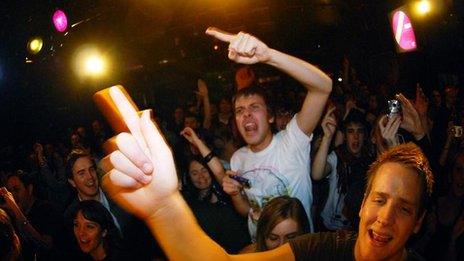Is YouTube killing the UK’s live music scene?
- Published
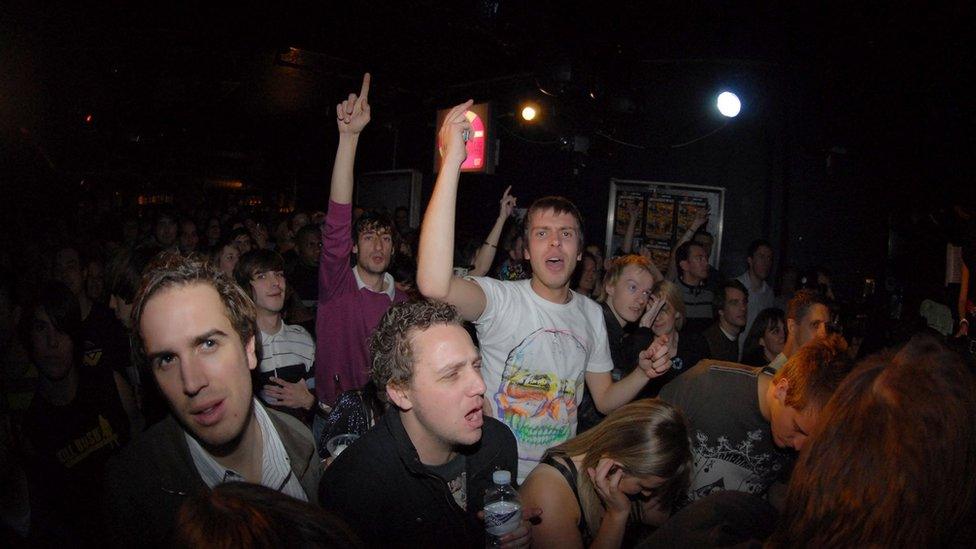
In London alone, 35% of small venues have closed since 2007
Are small music venues being put out of business as more and more artists are discovered online?
Last week, Canadian singer Shawn Mendes replaced Justin Bieber at the top of the charts. Nothing strange about that, you might think - clean-cut teen stars are the staple diet of the music industry.
But, crucially, both artists were signed before they'd proved their ability to play in front of an audience. Bieber was discovered through his YouTube channel, while Mendes amassed 3.8 million followers on the video-sharing app Vine.
They're not alone. The Weeknd, Jessie J, 5 Seconds of Summer, Halsey and Soulja Boy all built an audience online before eager record labels snapped them (and their fanbases) up.
Canadian star Alessia Cara, who recently came second in the BBC Sound of 2016, is a typical YouTuber. She amassed millions of views for cover versions of Jessie J and Lorde - but she hadn't performed in public until she auditioned for her management company in New York.
"It was so scary because that was probably one of the first times I really sang in front of anyone," she told the BBC. "It was terrifying - but I did it."
But with so many artists emerging this way, what happens to the dingy pubs and sweat-soaked clubs that used to be the lifeblood of the music industry?
The statistics don't look good. In London alone, 35% of small venues have shut in the last decade.
Places like the Sheffield Boardwalk, the Princess Charlotte in Leicester and the Cockpit in Leeds have also shut their doors in recent years.
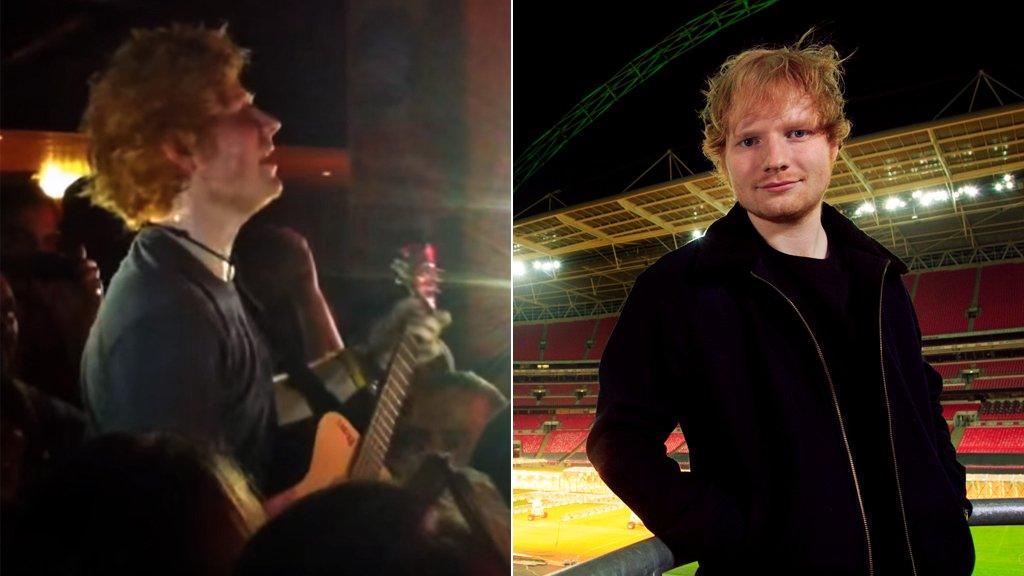
Ed Sheeran went from playing pubs to Wembley Stadium in just five years
The cull of club culture has prompted a new initiative, Independent Venue Week, external, which aims to remind people of the value of live music.
"It's very easy to take small venues for granted," the event's founder, Sybil Bell, told BBC 6 Music.
"What's happened recently, with a lot of venues closing, is that people are jumping up and saying, 'we need to save our venues'. But what would be more productive is if they went to the venues more frequently before that even became the case."
She says people have become lazy, streaming shows at home, or liking bands on Facebook instead of watching them at a local venue.
"There's no night on your sofa that's better than a night out at a gig," she protests.
"You never know who you're going to see, you don't know how great the band is going to be, you never know if they're going to mess up and recover. There's a real romance to it."
'Oxygen' for bands
"It's really sad to see these places closing," agrees Brit Award winner Mark Ronson. "They're incredibly important to a band on the way up. Even The Beatles played 10,000 hours in Hamburg. Bands need those spaces to practise."
"They're integral to being able to grow as a performer," agrees Jack Garratt, who recently supported Mumford and Sons on tour, after crafting his show at 200-capacity venues.
"You have to start small to understand what needs to happen when you get bigger. Without that grounding, you don't have the ability to go onto a bigger stage and entertain the person way back at the end of the room."
Steve Lamacq: Are small venues under threat?
Yannis Philippakis, frontman of rock band Foals, says the Oxford venues where his band learned their trade - The Wheatsheaf and The Cellar - are still around, but he worries for the future.
"They were the places we cut our teeth [but] without the oxygen they afford young bands, you can't expect Britain to be able to create great music like it has been doing.
"If you cut that beginning step out, the things that will filter to the top will come through other avenues, whether that's X Factor or whatever."
But is that really the case? Maybe not. Everyone we spoke to in the music industry said live venues were still a crucial testing ground.
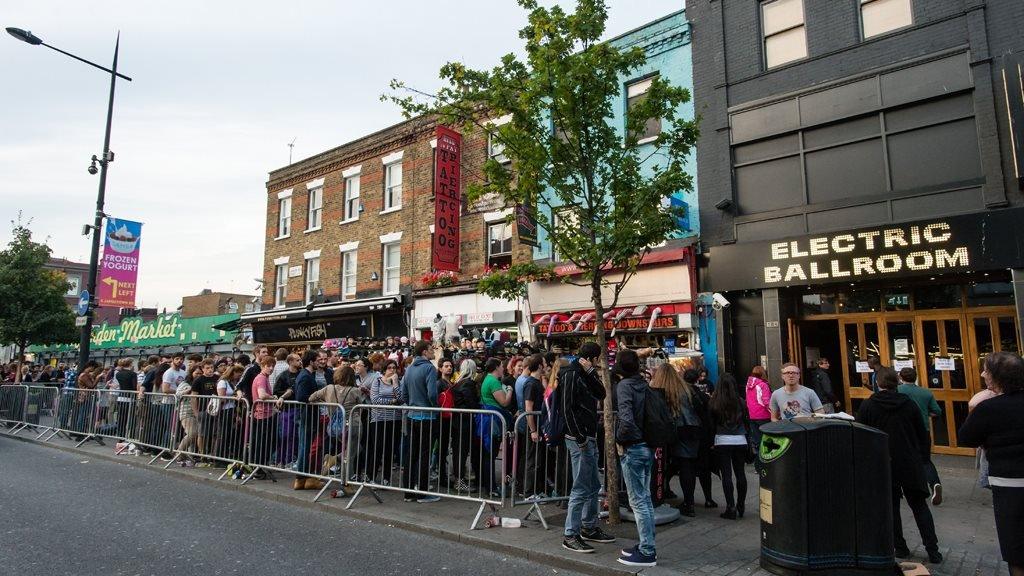
A-list bands like Muse often use smaller venues to road-test new material - causing a run for tickets
"Personally I would never sign a band without seeing them live," says Chris McCourt, who helps find and develop new talent for Atlantic Records.
"Live music is the band's bread and butter these days, and if they can't play live, I don't think they're going to have a career.
"On our roster, Ed Sheeran is probably the shining light for what constantly touring can bring you."
Indeed, the star says he couldn't have sold out three nights at Wembley Stadium last year without paying his dues on the "toilet circuit" (a network of venues so small that bands have to get changed in the lavatory. Either that, or they smell like toilets).
"I feel like I've done every venue on the ladder in England," Sheeran told the BBC last year. "My first ever gig was above a place called the Liberties Bar in Camden. It was in an upstairs back room. I had no PA - it was unplugged to about 13 people."
After five years of learning his craft, the star knew how to hold people's attention without expensive light shows, or even a full band.
"The UK is a very unforgiving audience," he says. "If you mess up, people here will say: '£50 to go and see him? We probably shouldn't do that again'."
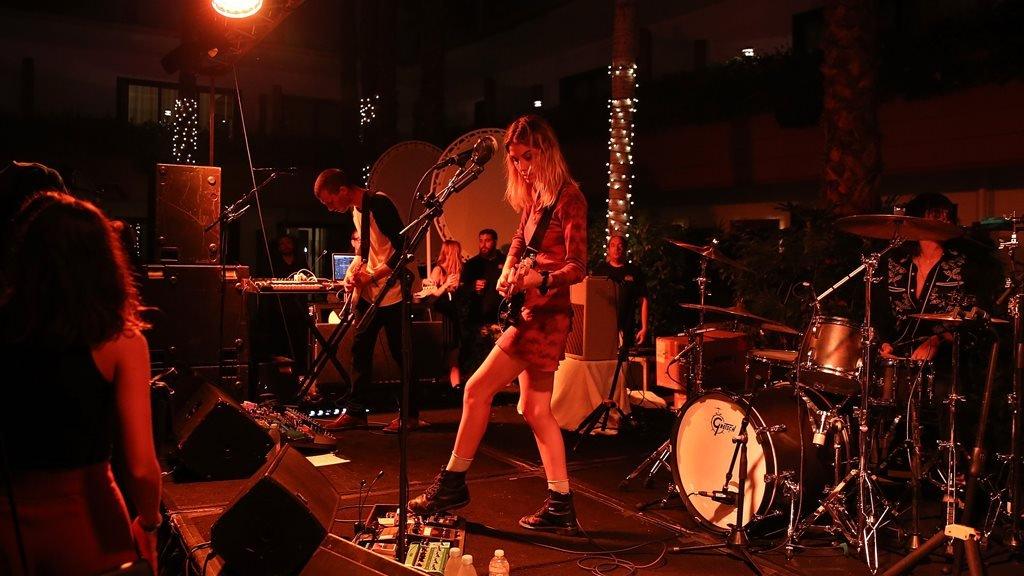
Wolf Alice: "There's a year of playing empty rooms in the same venues - then suddenly something clicks"
One of the first people to spot Sheeran's potential was Jamal Edwards MBE - the entrepreneur and owner of multi-million pound YouTube channel SBTV. He featured the singer in 2010, a year before his first record deal, and has also helped break artists such as Tinchy Stryder, Jessie J and Wretch 32.
But although his channel exists exclusively online, he insists on seeing new bands perform live first.
"I first saw Ed Sheeran in the Proud Galleries. I first saw Jessie J live in a club on Brick Lane. Sometimes I go to open mic nights. I think it's important. You experience whether someone can actually sing when you go to live music events."
"Every artist I've worked with, they've built themselves up doing their stuff on their YouTube channel, then when they're ready to take it into a live music space, they've got a following who'll go with them to that show."
It's a pattern he's followed himself - putting on "SBTV Presents" nights at clubs and festivals around the UK.
"I feel it connects people," he says. "The audience might not have met each other but they have the same interests, they watch SBTV, they can bond for a few hours. So it's important."
The 25-year-old, who was appointed MBE last year, says he has seen dozens of his old haunts shut down in recent years. "It's crazy. The events that get put on at these clubs have to move - and that's very disruptive. But there are still a few left that we need to make sure can carry on."
Rock band Wolf Alice agree. "In London at the moment, the rate they're closing is shocking," says bassist Theo Ellis, "especially the independently run ones".
"I think it's important to spread awareness that it's happening. A lot of people don't realise - and then one week their favourite venue will be a flat."
Steve Lamacq's BBC 6 Music show is touring the UK this week to take the temperature of the live music scene. Listen to the programmes on the 6 Music website and iPlayer.

- Published20 October 2015
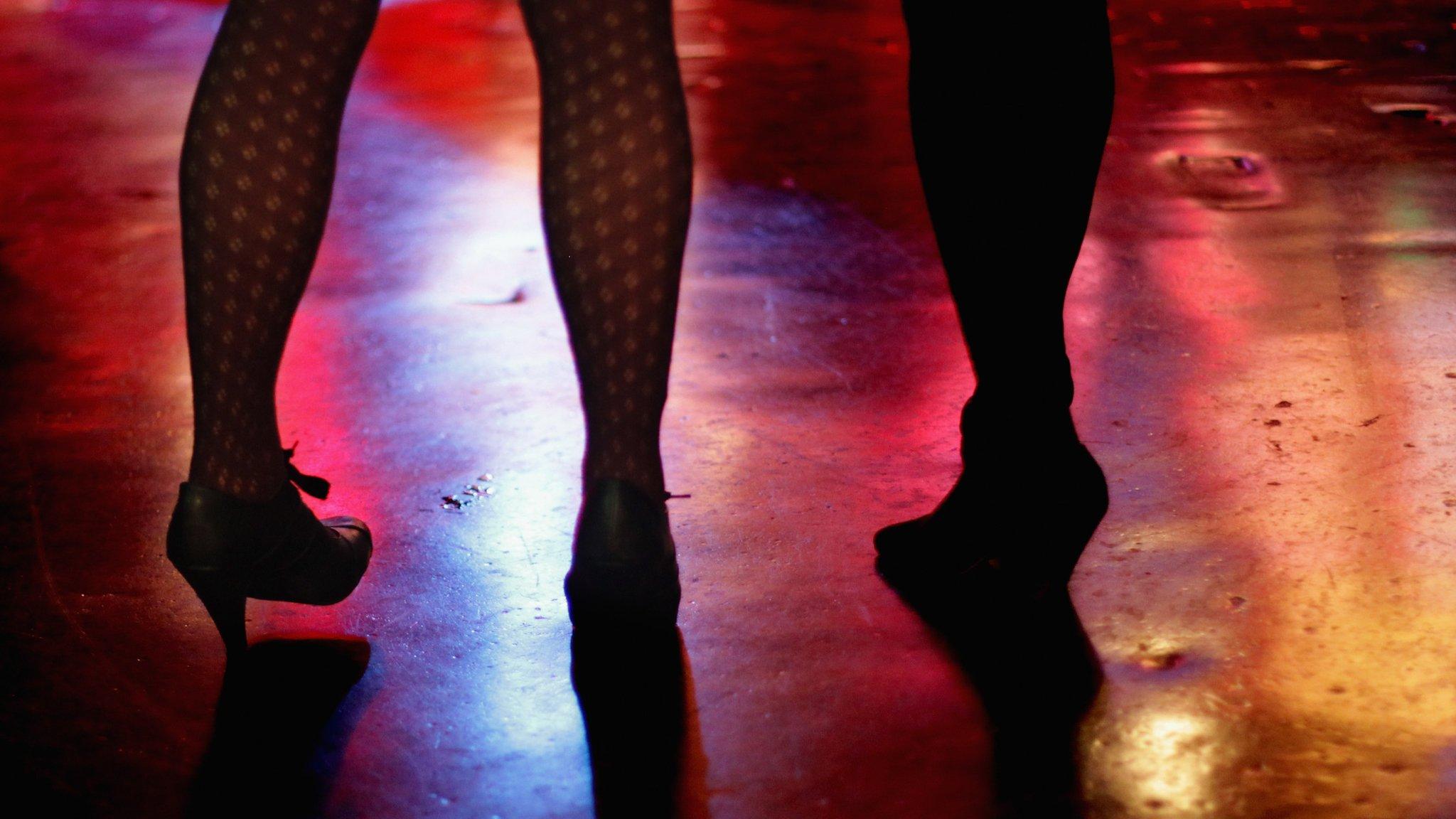
- Published19 October 2015
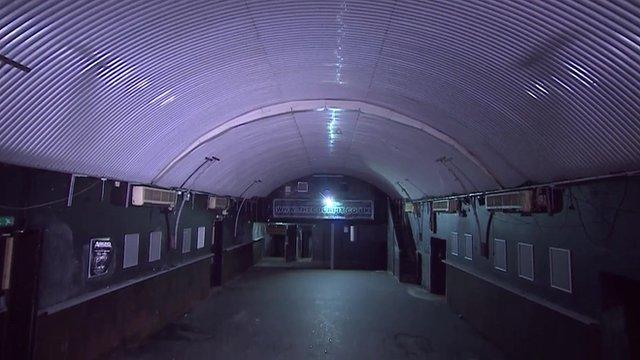
- Published1 October 2012
